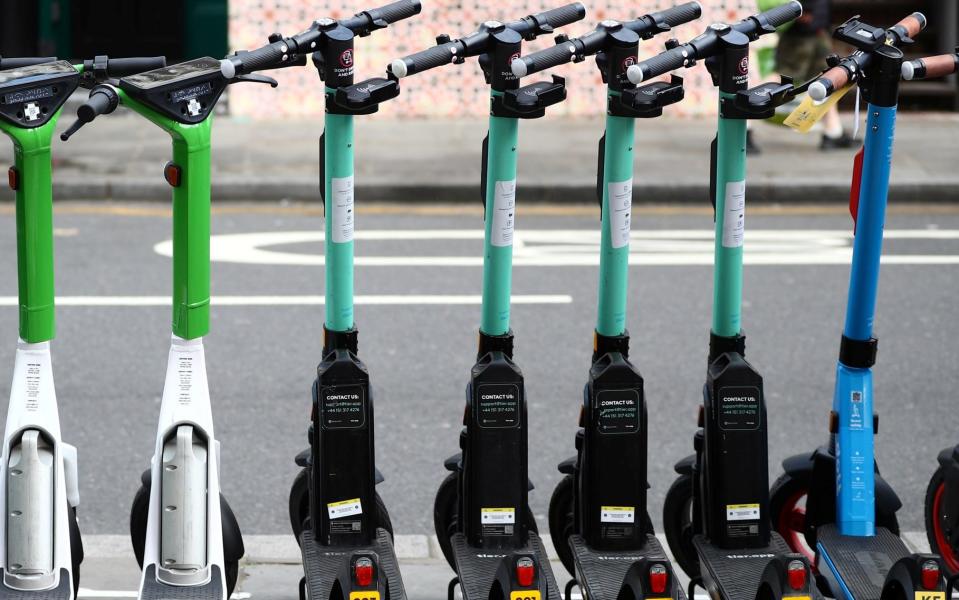‘Drink-drive’ e-scooter rider claimed acid reflux may have affected breath test

A man accused of riding an e-scooter while over the drink-drive limit at the Cheltenham Festival claimed his acid reflux condition could have skewed the breathalyser test.
Thomas Coleridge, 23, was stopped by police on the day of the National Hunt Festival Gold Cup while riding the scooter through Cheltenham town centre in March.
After being breathalysed by officers he gave a reading of 48mcg of alcohol per 100ml of breath, over the legal limit of 35mcg.
But appearing before Cheltenham magistrates' court, lawyers for Mr Coleridge argued that the results could have been affected by his acid reflux condition.
Richard Saynor, his lawyer, told the court that although Mr Coleridge had consumed some alcohol on the train from London to Cheltenham that day – a small amount of beer and half a glass of champagne – it was not enough to put him over the drink-drive limit.
The lawyer questioned the calibration of the breath testing equipment and said officers had not taken into account the fact that Mr Coleridge suffers from acid reflux, which could have thrown out the results.
Details of evidence
Mr Saynor also complained prosecutors had not provided details of the evidence in good time.
Prosecutor Cathy Thornton argued that the Crown Prosecution Service had provided all the information required but she accepted defence lawyers may not have had full access to the relevant material.
Presiding Justice Andrew Hedges refused an adjournment and insisted the trial would have to proceed.
Mr Saynor said: "The Crown appears to be scrabbling about trying to put their case together. But even now, despite this being the day of trial, there is still no working link to the evidence that we can review before any trial can proceed.
"The Crown has asked for an adjournment because it has not complied with the required conditions.
"According to the legislation surrounding the 2014 Magistrates Court Disclosure Review ,'It is against professional code of conduct if prosecutors proceed to trial having not complied with their statutory disclosure obligations', and it is my submission that this is the case here.
"All the evidence should have been served a long time ago, not on the day of trial."
An unfair trial
Justice Hedges ruled: "Because of the late disclosure of evidence from the Crown Prosecution Service and the fact that the defence lawyers were unable to read and view all the material, we feel that only an unfair trial can take place.
"As a consequence we will exclude all the prosecution evidence."
The prosecutor then withdrew the case.
Mr Hedges told Mr Coleridge, of Chelsea, west London: "The case is dismissed. You are free to go."
Mr Coleridge will be awarded costs at the standard Legal Aid rate.

 Yahoo Movies
Yahoo Movies 